MercoPress. South Atlantic News Agency
Environment
-
Friday, July 14th 2023 - 10:23 UTC
Extratropical cyclone hits southern Brazil
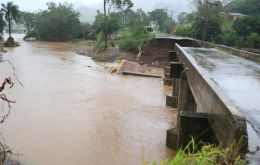
Brazil's southeastern State of Río Grande do Sul remains under alert because of heavy rains, windstorms, and hail caused by the passage of an extratropical cyclone, Acting Governor Gabriel Souza said Thursday.
-
Thursday, July 13th 2023 - 10:39 UTC
Uruguay's Tourism Minister says Argentine President's words were harmful

Uruguay's Tourism Minister Tabaré Viera Wednesday said that Argentine President Alberto Fernández's remarks that no water came out when people opened the faucets in Montevideo had resulted in numerous cancellations.
-
Thursday, July 13th 2023 - 10:32 UTC
Extreme heatwave grips Southern Europe, thermometers hit forty degrees

A heat-wave is sweeping across parts of southern Europe and north-west Africa, with potential record-breaking temperatures in the coming days. Temperatures are expected to surpass 40C (104F) in parts of Spain, France, Greece, Croatia and Turkey. In Italy, temperatures could reach as high as 48.8C (119.8F), is reporting BBC.
-
Thursday, July 13th 2023 - 07:30 UTC
European Parliament approves bill for the restoration of peat-lands
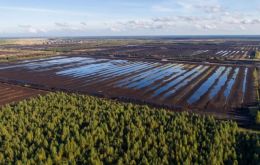
The European Parliament has accepted a key biodiversity bill that will see the restoration of CO2-storing peat-lands but has been criticized by farmers another opposition groups due to fears they might lose land.<br />
Testing the EU's global climate credentials, the lawmakers supported the European Commission plan in a razor-thin 324-312 vote with 12 abstentions. -
Wednesday, July 12th 2023 - 10:16 UTC
Brazilian Justice Minister outlines Amazon Security Plan

Brazil's Justice Minister Flávio Dino Tuesday announced that the government's Amazon Security Plan foresees 34 river and land bases and will involve the presence of different police forces, Agencia Brasil reported.
-
Tuesday, July 11th 2023 - 09:16 UTC
Water crisis: Uruguay accepts Argentina's help

Uruguayan President Luis Lacalle Pou Monday said his country would be accepting Argentina's help to mitigate the water crisis but added that the amount of drinking water offered was nowhere near the needs to match the volumes consumed normally in Montevideo.
-
Monday, July 10th 2023 - 10:56 UTC
Petro and Lula discuss Amazon crisis

Presidents Gustavo Petro of Colombia and Luiz Inácio Lula da Silva of Brazil convened Saturday at the so-called Leticia Summit in the capital of southern Colombia's Amazonas department to discuss the deterioration of the Amazon rainforest and share experiences on the issue.
-
Monday, July 10th 2023 - 10:38 UTC
Brazilian States of Pernambuco and Alagoas under weather emergency
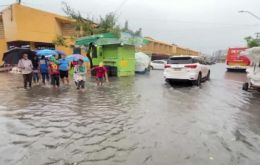
The Governors of the Brazilian States of Pernambuco and Alagoas issued separate emergency decrees during the weekend due to heavy rains affecting 12 and 29 cities respectively, Agencia Brasil reported.
-
Monday, July 10th 2023 - 02:24 UTC
Falklands government and NGOs restores tussac peatland on nature reserves
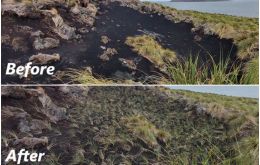
The Environment Department of the Falkland Islands Government has announced a successful tussac planting campaign at Gid’s and Middle Islands this winter in collaboration with Island LandCare and the Antarctic Research Trust.
-
Saturday, July 8th 2023 - 14:28 UTC
IMO agrees to cut greenhouse gas emissions from international shipping by mid century
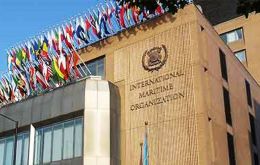
The International Maritime Organization, IMO on Friday sealed a deal that sets ambitious emissions-cutting targets. IMO agreed to cut total annual emissions of greenhouse gases “by at least 20%, striving for 30% by 2030” and “by at least 70%, striving for 80%, by 2040.”
